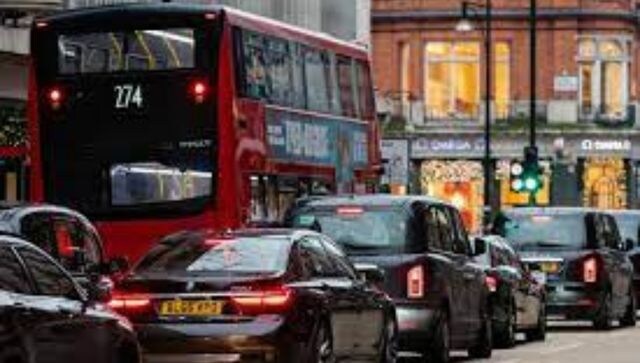Britain’s National Grid to pay people to use less electricity as cold snap bites
In Britain, more than a million households and business establishments are signed up for the Demand Flexibility Service (DFS), which rewards people, usually through waiving money off their bills for turning off appliances during a specific period when electricity demand is high

Representational image. News18
London: The National Grid of the United Kingdom has said it will offer customers money to use less power on Monday and Tuesday evenings this week more so when the demand for electricity is at its peak. This is the first time that the Grid has, come up with such a scheme designed essentially to help prevent power shortages amid a particularly ruthless winter.
In Britain, more than a million households and business establishments are signed up for the Demand Flexibility Service (DFS), which rewards people, usually through waiving money off their bills for turning off appliances such as ovens and dishwashers and other gadgets during a specific period when electricity demand is high.
The National Grid had warned in October that British households could face three-hour rolling power cuts this winter if the country was unable to secure enough gas and electricity imports. It launched the DFS as part of its tool box to help prevent power outages.
The service, which has been on trial but not run in a live situation before, will now be put into practice from 5 pm. to 6 pm. on Monday, it said, adding that the move did not mean electricity supplies were at risk and advised people not to worry.
The new measures were announced in order to “ensure that everyone gets the electricity they need,” Craig Dyke, head of national control at National Grid ESO, told BBC Radio on Monday. He added that nearly 26 suppliers had signed up for the scheme.
This year and over the last couple of months, the United Kingdom has recorded below-freezing temperatures with the Met Office last week issuing severe weather warnings for more snow and ice.
A separate move calling on coal-fired power plants to fire up as back-up power was rejected for Monday evening across the UK as the supply picture had since improved, a National Grid spokesperson said.
But later, the National Grid said three coal-fired plants had been instructed to warm up to be on standby for Tuesday, and also called on those signed up for the DFS programme to again curb electricity use between 4.30 pm and 6 pm on the first two days of the week.
“The use of these additional services is not an indication that electricity supplies are at risk, but that we require greater options to manage the network as normal,” the National Grid’s ESO said in a statement.
Chief executive of British Energy regulator Ofgem, Jonathan Brearley, said on Monday the country’s overall power supply outlook had improved from when the National Grid first warned of potential power cuts.
He said high gas stocks in Europe and an improvement in the operation of French nuclear plants, which often provide electricity to Britain via several power links, had helped to ease the supply risks.
Read all the Latest News, Trending News, Cricket News, Bollywood News,
India News and Entertainment News here. Follow us on Facebook, Twitter and Instagram.
also read

New British law to deal with strikes to be introduced to Parliament
Britain is experiencing a wave of industrial action as pay rises fail to keep up with double-digit inflation, which is now around 40-year high. Nurses, ambulance staff and rail workers are among those who have staged walkouts

Rishi Sunak scores as UK vote winner, beats Boris Johnson in new survey
The Savanta ComRes survey for ‘The Independent’ newspaper found that Johnson’s perceived popularity as the Conservative Party leader who won a big mandate in the 2019 general election does not necessarily translate among British voters ahead of the next polls expected in 2024

Cash-strapped UK city councils rake in moolah through daily fines
Penalties for errant drivers or incorrect parking have gone up by more than a third compared with the 14,426 issued each day in 2020, when successive lockdowns meant fewer cars on the road
